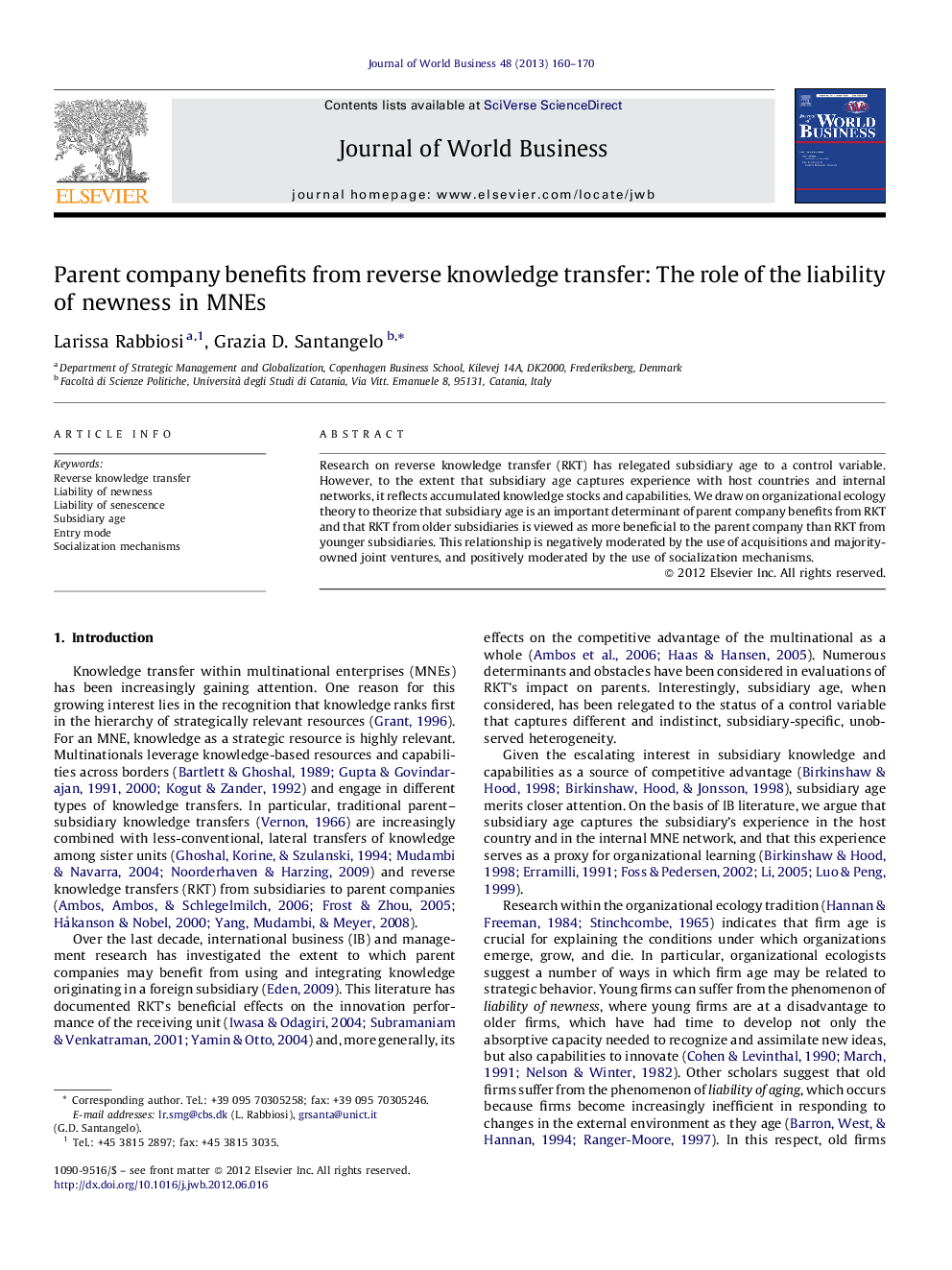| Article ID | Journal | Published Year | Pages | File Type |
|---|---|---|---|---|
| 1002165 | Journal of World Business | 2013 | 11 Pages |
Abstract
Research on reverse knowledge transfer (RKT) has relegated subsidiary age to a control variable. However, to the extent that subsidiary age captures experience with host countries and internal networks, it reflects accumulated knowledge stocks and capabilities. We draw on organizational ecology theory to theorize that subsidiary age is an important determinant of parent company benefits from RKT and that RKT from older subsidiaries is viewed as more beneficial to the parent company than RKT from younger subsidiaries. This relationship is negatively moderated by the use of acquisitions and majority-owned joint ventures, and positively moderated by the use of socialization mechanisms.
Related Topics
Social Sciences and Humanities
Business, Management and Accounting
Business and International Management
Authors
Larissa Rabbiosi, Grazia D. Santangelo,
